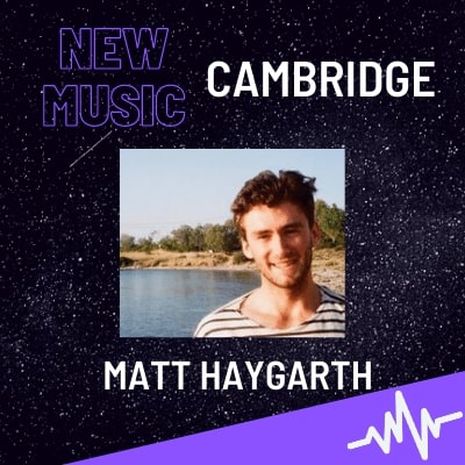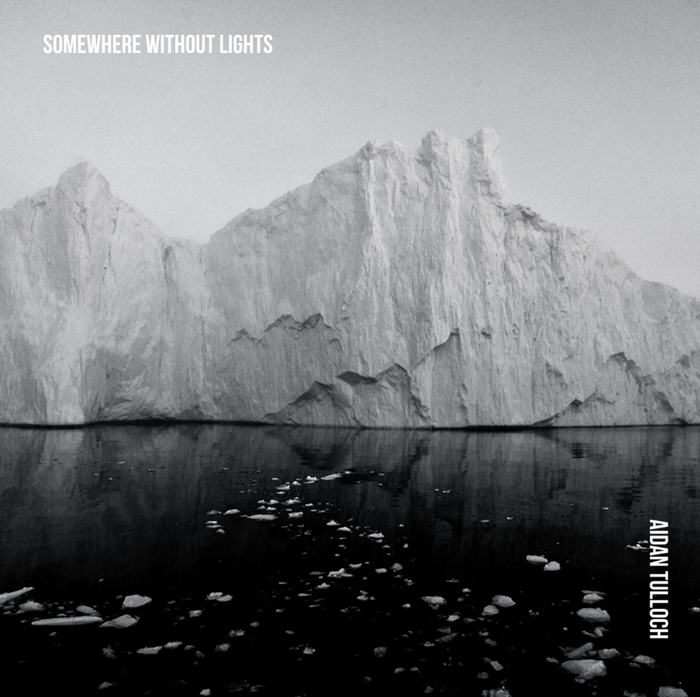Lyricising in lockdown: Matt Haygarth at New Music Cambridge
CamFM presenter Kate Granlund talks to student musician Matt Haygarth about his experience of creating his debut album in lockdown

As Rishi Sunak tells UK musicians and artists to ‘retrain and get a different job’, and music venues slowly implode with no support from the government, it is more important than ever to support up-and-coming artists. Lockdown gave many people the time and headspace to create music, but also took away venues in which they could perform, robbing these artists of the opportunity to connect with a live audience; to see their music unite a group of strangers in a shared experience.
Cambridge railings are typically plastered with posters advertising live music of all kinds, and these posters remain up today, a colourful display that once felt hopeful but now feels like a nostalgic relic. We are now living in an in-between space with music; walking through town, you may hear choirs rehearsing at safe distances, but attending an entire service must be via livestream. We can interview musicians on the radio, but the conversation must take place over Zoom.
On the new CamFM show, New Music Cambridge, my friend Olivia and I speak to a different musician each week, and play both their music and the music of artists who have inspired them. We want to promote the music of students at Cambridge and Anglia Ruskin University by introducing it to students who would once have discovered it through gigs. We also explore a different, more intimate relationship, which exists between the musicians we speak to and the musicians who have inspired them, a relationship that can be played out in the comfort and solitude of one’s own room.
“The album contains stunning melodies, musical guitar riffs and contained drums...”
In our first show, we spoke with Matt Haygarth, a second year music student at St Catherine’s College, who created and released his debut album Running Standard over lockdown. It is a reflective and beautifully executed album, running from the first track, ‘opening/wakeup’ to ‘closing/stay’. The album contains stunning melodies, musical guitar riffs and contained drums which flit in and out of focus. The tracks alternate between the reflective and the absurd, with tracks such as ‘Interlude (hunger)’ and ‘Twisted Ankle’ permeating the album with the rhythms of the everyday.
However, the album really excels in the quieter and more reflective tracks, such as ‘Under Sunny Skies’, depicting the ephemeral beauty of being in nature with one other person: “On the beach / where you sleep / we watch the waves in: By the brook / in the woods / we watch the waves in”. A beautifully simple guitar part sits underneath the vocals, evoking the regularity of the waves.
When explaining his process of writing an album, Haygarth described part of the joy as “thinking of a song, not as a quick impulsive thing, but as something that can be part of a bigger narrative.” But the writing process was not as linear as the final result. “I start with the rhythms and music, and then the lyrics evolve out of this,” Matt explains, citing D’Angelo as one the more subconscious influences on his rhythmic base of the song ‘Twisted Ankle’. He describes ‘Feel Like Makin’ Love’ by D’Angelo as “One of the best grooves I’ve ever heard in any music... ever”. Influences such as Bon Iver and Big Thief also find their way into the melodies and more solitary moments of the album.
“I start with the rhythms and music, and then the lyrics evolve out of this”
As I speak to Haygarth, there is a tangible sense of his love for the nature he grew up around. He describes the opening track to Bon Iver’s second album: “‘Perth’,” he says “It takes you out to this expansive [place]. I always imagine a sunrise... I’m from near the Lake District and my friends and I say ‘that’s a Perth kind of moment, like when you’re on top of a mountain or by a lake expanding before you with a sunset in the background.’”
These two artists are similar in the intimate relationship that they have with nature. Bon Iver’s first album was recorded whilst their singer-songwriter spent three months isolated in a cabin in Northwestern Wisconsin and there is the sense that Haygarth’s album is similarly a product of a solitary time. He tells us that lockdown gave him the space to create this album: “I was fortunate that I had the time and the mental space to actually create something, and that was very fulfilling too”.
We ask Haygarth about the difficulties of recording and releasing music during lockdown. He tells us that a negative part of the process is how much the success of the album relies on your social media image, the packaging and promotion of the product: “I don’t like social media very much, and I’m not very good at it”.
We also discuss the difference in reception of the music: “You don’t get the same instant reaction as you would in a pub or a gig venue when the internet separates you from your listener,” he says, “the reaction is staggered, and it’s slow and difficult to gauge what people are thinking about my music.” However, despite this slightly disconcerting time lag, Haygarth points out that at a gig everybody would clap regardless of how much they enjoyed the set, whereas the praise for the album that he received over lockdown was a sign of listeners genuinely enjoying the album.
 Comment / Plastic pubs: the problem with Cambridge alehouses 5 January 2026
Comment / Plastic pubs: the problem with Cambridge alehouses 5 January 2026 News / Cambridge businesses concerned infrastructure delays will hurt growth5 January 2026
News / Cambridge businesses concerned infrastructure delays will hurt growth5 January 2026 News / Cambridge academics stand out in King’s 2026 Honours List2 January 2026
News / Cambridge academics stand out in King’s 2026 Honours List2 January 2026 News / AstraZeneca sues for £32 million over faulty construction at Cambridge Campus31 December 2025
News / AstraZeneca sues for £32 million over faulty construction at Cambridge Campus31 December 2025 Interviews / You don’t need to peak at Cambridge, says Robin Harding31 December 2025
Interviews / You don’t need to peak at Cambridge, says Robin Harding31 December 2025










